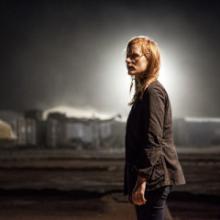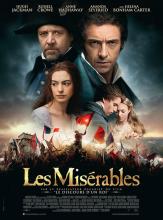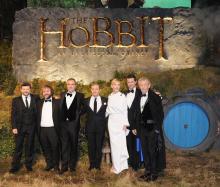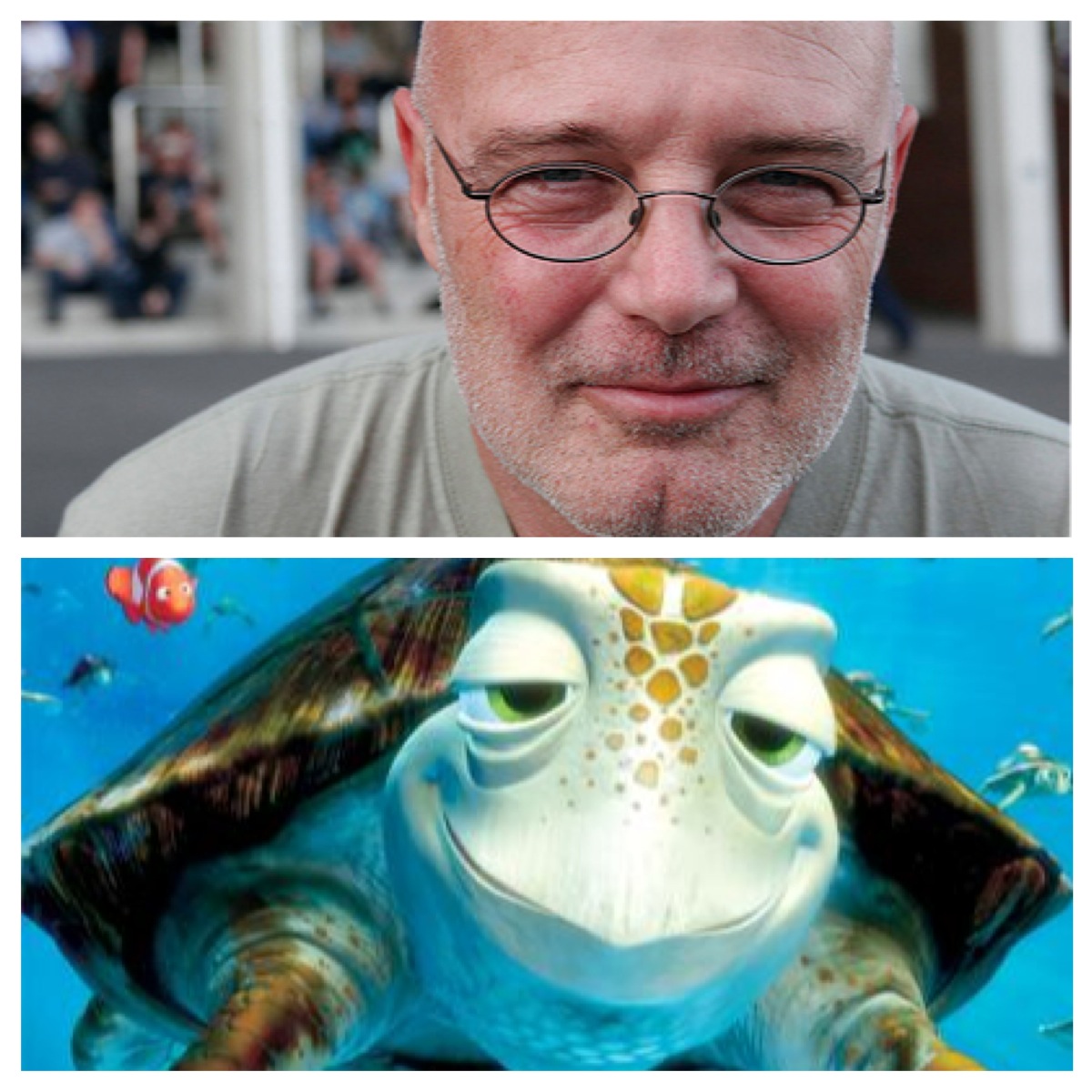Film

Nothing was tortured more in the making of Kathryn Bigelow’s film Zero Dark Thirty than the truth about torture.
While it’s just a movie, it runs the risk of becoming the basis for a false view of reality for millions of moviegoers who have largely ignored a decade of debate about the efficacy of the United States sanctioning torture.
To dismiss the movie as simple entertainment ignores the impact seeing it has on our perception of reality, even when we understand we are watching actors in a — mostly — pretend setting.
The fact that Zero Dark Thirty was nominated this week for an Academy Award for Best Picture only underscores the importance of understanding what it gets wrong about torture.
THE BEST experiences I had at the cinema last year were nostalgic—re-releases of The Life and Death of Colonel Blimp and Lawrence of Arabia were uncanny reflections on the cost of war to soldiers and some roots of contemporary Middle East strife. Here's my list of the best films released in 2012:
10. A tie:The Pirates! Band of Misfits, a gloriously rich, smart comedy for all ages, full of life and self-deprecating humor, and Life of Pi, which envelopes its audience with visual wonders and spiritual questions.
9. Wes Anderson's delightful treatment of childhood first love amid dysfunctional adults, and a film not afraid of the shadow side of growing up, Moonrise Kingdom.
8. The Cabin in the Woods, a gruesome horror comedy that not only enacts and portrays, but understands the lie of redemptive violence.

For many centuries Christmas Day worshippers have been hearing these words as their New Testament reading: “For the grace of God has appeared, bringing salvation to all” (Titus 2:11). Grace, everyone used to know, is foundational to the Christian Gospel.
But this Christmas I’m noticing the surprising version of grace in Les Miserables, already seen by 60 million people as a musical and now as a film. Victor Hugo’s novel may be seen as a story of grace transforming in the life of the common man Jean Valjean and grace rejected in the life of the rigid functionary Javert.
As the story begins, Jean Valjean is being released from 19 winters of imprisonment for having stolen some bread to save his sister’s son from starving. But in the eyes of Javert, Valjean will always be a thief, which is his nature, because he has not learned the meaning of the law. Crushed under this ideological overlay, Valjean sees himself as a slave of the law — in a way remarkably similar to that of St. Paul, who makes grace and law antithetical. The chorus confirms it: “Look down, you will always be a slave.”
In his first job after prison, Valjean is deliberately underpaid. When he objects, the boss says: “Why should you get the same as honest men like me?” (Jesus once told a parable about laborers in a vineyard to open people’s eyes to grace.) Valjean concludes that society has closed every door to him. When he is refused lodging, the innkeeper says: “We’re law-abiding people here. Thanks be to God.” The conservative identification with the law is commonly made in alliance with God, while Victor Hugo seems to understand that the Christian vision identifies grace, not law, with God.

This will be a night to remember!
On Monday, I had the opportunity of attending an advance screening of The Hobbit: An Unexpected Journey with a good childhood friend of mine. I sat in my favorite movie-watching seat (a few rows back and dead center), munching on free popcorn and drinks provided by a fellow moviegoer who wanted nothing more than to ensure that his entire row in the theater was happy and well-fed (not too unlike a Hobbit, really).
Just before the lights dimmed, I remember thinking how perfect the whole moment was. However, as exciting and as wonderful as those final moments of anticipation were, I also couldn’t help but wonder if I might be setting my expectations too high for the film that was about to come.
It turns out I needn’t have worried.

In search of a story that will “make you believe in God?”
It’s a heavy undertaking. Kind of like trying to adapt that story to film, as screenwriter David Magee and director Ang Lee did brilliantly in Life of Pi, which opens nationwide today.
The film, adapted from Yann Martel’s moving book, takes on massive questions — who is God, how do we find God, and why do bad things happen to us — as we follow Pi, a zookeeper’s son shipwrecked on a lifeboat with a Bengal tiger.
“I think we’re humble filmmakers — I don’t think we can answer why bad things happen to people,” Magee told Sojourners Tuesday. “But I do think it puts into perspective the fact that within every ordeal there is a lesson.
“This is very much a story about storytelling,” Magee added. “It’s very much a story about how those different narratives help us get through. It can’t promise to answer why we go through the things we do, but it can say what we take away from them.”

Abraham Lincoln was a storyteller, so it’s fitting that his story has been hashed out on the silver screen — without vampires.
And to say that it simply was “hashed out” would be an injustice to director Stephen Spielberg and everyone who contributed to Lincoln, a film that will be remembered as much for its beauty as the iconic character from which it gets its name.
I’m not going to lie (pun intended), even though Lincoln is one of the most important figures in American history, I was hesitant about seeing a movie with the potential to be a two-and-a-half hour history class.
But I was more than pleasantly surprised.
Despite its length, the film drew me in and held my attention — even as a millennial growing up with the Internet, which I’m convinced has significantly chipped away at the already small attention span I have.

Steve Taylor, film director and rock hero, visits our (mine and Jordan Green's) Homebrewed Christianity podcast to talk about the disappointing theater run of his film, Blue Like Jazz, what made him leave music for film, and to announce his return to music through a new album he’s been working on.
So, yeah, that’s a big deal. And yeah, we’re pretty much breaking the story.
In the Echo Chamber, we talk about the election, Superstorm Sandy, scary movie commercials, and, you know, a bunch of other stuff. Finally, we discuss some common Christian cliches.
Listen ... inside the blog.

Tomorrow night is the first presidential debate. It will undoubtedly be an important moment in the campaign for the highest office in the land. But, whose lives will it be important to?
Certainly, there will be a lot for pundits to discuss and dissect. They will analyze phrases and statements, and will compare them to polling data and focus groups in swing states. Super PACs will record gaffes by either candidate, ready to turn them into multi-million dollar commercial buys.
But, as a person of faith, what I want to know is: how will the words that are said and the positions that are staked out affect the 46 million people in our country living in poverty? What does it mean for the hardworking families who can't put food on the table? Or the 1 in 5 children for whom poverty is an everyday reality and opportunity seems to be an illusion?
Tonight is the world premiere of a film that puts those questions front and center. The Line is a new documentary film from Emmy award-winning writer and producer, Linda Midgett. It tells the stories of real people struggling to make ends meet but still falling below the poverty line. These are stories far too common in our country today and should be a central topic of this debate.

Coptic Christian leaders in the United States distanced themselves from an anti-Muslim film that has sparked protests in more than 24 countries, and denounced the Copts who reportedly produced and promoted the film.
"We reject any allegation that the Coptic Orthodox community has contributed to the production of this film," the Coptic Orthodox Archdiocese of America said in statement on Friday.
"Indeed, the producers of this film have taken these unwise and offensive actions independently and should be held responsible for their own actions."

RECENT MOVIES have been dominated by a surprising theme: the exploration of gender through black goo in outer space, strippers in Florida, and a red-haired teenage rebel in mythical Scotland. Detours among British ex-pats in India in The Best Exotic Marigold Hotel, a genetically modified high school student in New York in The Amazing Spider-Man, and a scout troop on a coastal New England island in the fabulous Moonrise Kingdom added flavor to the mix. But it was the deceptively simplest of films that caused me to think most about what it means to be a human being, and how the fact of gender must be wrestled with, negotiated, and contested rather than assumed.
The wonderful thing about Pixar’s Brave is how it negates the historic disempowerment of female fairy tale protagonists. This is a new kind of Disney princess: one who doesn’t need a man to save her, nor homicidal violence to achieve victory; one who develops a healthy relationship with her mother; one, ultimately, who takes responsibility for her mistakes, integrating Snow White purity with Mulan’s steel. It’s also a physically beautiful movie, delightfully entertaining, and alive for adults and kids alike.
On the other hand, the world of Magic Mike, wherein Channing Tatum relives his earlier career as a bachelorette-party treat, is a film about lost men who play on stereotypical female desire for tips. The soulful yearning for intimate connection that Mike embodies is the most emotionally resonant part of a film otherwise of average interest.
Spike Lee is not about to give up filmmaking but – at least for a moment or two – he sounded a bit like an expert on the challenges facing the church as he promoted his new movie Red Hook Summer.
“Any church whose members are senior citizens and there’s no youth coming behind, they’re going to die out,” Lee said in a roundtable discussion with reporters.
“Now that goes for synagogues, mosques, temples too — any institution,” Lee continued. “You got to always try to have that infusion of youth. They might not be as smart but youth has energy.”

THOSE OF US who are passionate about prison reform could talk at length about the injustices of the penal system, but prison activists and concerned citizens sometimes gloss over the internal conflicts of prisoners in their daily lives as well as the pain and fears of crime victims in local communities. The documentary Concrete, Steel, and Paint raises some essential questions about hope, forgiveness, and reconciliation through the moving story of unlikely partners—those incarcerated for committing violent crimes and those affected by violent crimes—who come together to create a mural in their community.
The film begins at Graterford Prison near Philadelphia, a maximum-security institution where men are serving long sentences for violent crimes, including homicide. The men interviewed for the film seem thirsty for opportunities for healing. One of the first prisoners we meet, Tom, says: “When you do wrong that you can’t correct, it’s horrible.” Another inmate, Zafir, tells the camera: “I don’t want my legacy to be that I was a murderer.”
The energy for a mural project came from Jane Golden, the executive director of the Philadelphia Mural Arts Program, who believes in the power of art, and murals in particular, “to shift the consciousness of a community.” Golden began working with prisoners in Graterford in the early 2000s. The men in her workshops eventually came up with the idea to reach out to the community. “I thought it was an interesting idea,” Golden says, “but I told them the only way this can possibly work is if we can get the community involved.”
After a significant amount of pushback from community members, Golden suggests making two separate mural walls to convey the different journeys of offenders and victims. “It’s healing for me to tell my story,” says the mother of a homicide victim. “Maybe it will be helpful for them to tell their story.” The film teaches viewers that there are points of similarity in these stories—hurt, loss, anger, regret—and there is a shared desire for healing and for change, but the journeys are still different and portraying them in shared space could minimize the ability to convey truth for each group. Can offenders and victims of crime ever share a platform to express pain, to ask for healing?

IN THE 1930s, the Marx Brothers took political satire seriously enough to make a comedy about imperialism. Duck Soup stands today as one of the most comforting movie antidotes to the depressing post-9/11, enemy-until-proven-friend political culture. The 1960s saw Stanley Kubrick upgrade the cinematic presentation of war into Dr. Strangelove: Or How I Learned to Stop Worrying and Love the Bomb—employing the Screwtapian dictum that if the devil cannot bear to be mocked, then the best way to reveal the horror of war is to laugh at it. A decade later, Mel Brooks attacked—and transcended—white supremacy in Blazing Saddles, a film whose coruscating offensiveness is merely a mirror to our own prejudices. Sacha Baron Cohen is the evident successor to the Marxes, Kubrick the comic satirist, and Brooks. (Some of Michael Moore’s work, and both Armando Iannucci’s In the Loop and Chris Morris’ Four Lions, deserve attention in this light too.)
Baron Cohen’s trilogy of fish-out-of-water-in-the-U.S.A. films, Borat, Bruno, and current release The Dictator, taken together, constitute both deliriously funny entertainment (sometimes confused, and with something to offend truly everyone) and a jeremiad against the monstrosities of our time: racism, sexual violence, homophobia, xenophobia—and that’s just for starters. The Dictator has post-9/11 politics, the war on terror, Islamophobia, and anti-Semitism clearly in its sights. Our hero—for that is what he ultimately becomes—is a Middle Eastern tyrant in the Saddam/Gadhafi mold, with a bit of Ahmadinejad and even Kim Jong-Il thrown in for good measure. He gets lost in New York and experiences what life is like outside the palace, leaving behind its personal executioner and other amenities. His path to liberation and respecting others comes through working in a vegan grocery store—not an unrealistic program in the non-cinematic world. What’s remarkable about his transformation is that it comes in response to meeting a broader variety of characters than you’d find at the U.N., and to being mentored in treating sexuality (his own and others’) with more respect.

No introductions necessary here, right? We all have been looking forward to this conclusion of the Christopher Nolan-directed Batman trilogy and I am happy to report that my excitement for the summer blockbuster has been satisfied.
The Dark Knight Rises takes the viewer to the eight-year anniversary of the death of Gotham's white knight, Harvey Dent. Despite knowing the dark truth about Dent's demise, Commissioner Gordon (Gary Oldman) maintains the virtuous persona of the slain District Attorney while similarly honoring the reclusive behavior of the ailing and secretive heir, Bruce Wayne (Christian Bale).
Batman, too, has been out of the spotlight in the years following Dent's death, having taken the blame for his demise in order to cover Dent's actions, but his absence is put to the test with the emergence of a new villain — the mercenary extraordinare, Bane (Tom Hardy), who brings the havoc and rage reminiscent of Wayne's former mentor, Ra's Al Ghul.
Batman is forced to re-evaluate his former relationships with Gordon, Lucius Fox (Morgan Freeman), and his loyal butler, Alfred (Michael Caine). He also must learn whether to trust new people on the scene or not, including the successful (and fetching) thief Selina Kyle (Anne Hathaway), board member Miranda Tate (Marion Cotillard), and Gotham Police Officer John Blake (Joseph Gordon-Levitt). The rest you'll have to see for yourself.

In light of the tragic events which took place in Aurora, Colo., a few days ago, I feel uncomfortable providing a review of a film I was watching at the same time as the dozen souls who lost their lives in such an unfathomably awful situation. I’m sure that the emotions of excitement and anticipation that I felt in the days leading up to the film, as the previews rolled and as the opening scene of The Dark Knight Rises unfolded before my eyes, will forever be mixed with feelings of deep sadness and anger the senseless violence that descended in Colorado.
Through the lens of what happened last Friday, The Dark Knight Rises has, rightly or wrongly, taken on a new layer of meaning for me (and, I'd imagine, many other moviegoers). It is a film about the very darkest of times — when all hope seems lost, when there are no heroes — and what happens when we allow the worst of ourselves to take control.
But it is also a story about redemption. It is a tale of finding courage in the face of overwhelming adversity, in spite of overwhelming physical and spiritual suffering. Christian Bale’s Batman (and indeed his Bruce Wayne), is in some ways a more timid character, by comparison, to the Batman who saved Gotham City from The Joker's psychotic games in The Dark Knight.
Older, weaker, and yet not much wiser, in The Dark Knight Rises Batman/Wayne does not see the city that in which he has made himself a recluse, in the same way as its other citizens. We see a man out of touch with those he once had inspired, with many citizens of Gotham believing Batman to be a murderer (the ghost of Harvey Dent looms large throughout the film) or leaving him for dead.
He has nothing more to give to a Gotham where organized crime is a thing of the past, a city that no longer believes it needs a hero to protect it. Gotham, its leaders conclude, is doing just fine without "the Bat."

I liked this film so much I've already seen it twice. Moonrise Kingdom is so good, in fact, I almost couldn't bring myself to write about it for fear of not doing it justice.
And yet, since I first took my 11-year-old nephew, Ethan, to see it last month, I've been talking about Moonrise Kingdom nonstop, encouraging everyone I know to go see it. It has captured my imagination completely, an absolute tour de force — wholly original and an "instant classic," as I heard one film critic utter tell a companion on his way out of the theater.
Perhaps Ethan, a mythology buff who's never met a fantasy film he didn't like, put it most eloquently when he said (surprising no one more than himself), "That was the best film I've ever seen."
Moonrise Kingdom is director Wes Anderson's seventh feature-length film to date. In an iconoclastic cinematic oeuvre unrivaled among filmmakers of his generation, Anderson's latest stands above the rest of his stellar films — Bottle Rocket, Rushmore, The Royal Tennenbaums, The Life Aquatic with Steve Zissou, Fantastic Mr. Fox and Darjeeling Limited — as an eloquent, funny, enduringly poignant homage to childhood and, moreover, to innocence.
In a word, the film is perfect. I wouldn't change a thing.

So, you've seen Politicians Who Look Like Disney Characters.
Maybe you've perused Celebrities Who Look Like Historical People and already wasted some time checking out Cats That Look Like Hitler, Men Who Look Like Kenny Rogers or Pugs That Look Like Things.
Today it's our great pleasure to bring you 16 Christian Leaders and Their Cartoon Counterparts, including our buddy Brian McLaren (over there with Turtleman from Finding Nemo), Rick Warren, Rachel Held Evans, Mark Driscoll, John Piper, Rob Bell, God's Politics contributor Shane Claiborne, Pope Benedict XVI, our very own Sojourners Chief Executive Awesomeness Jim Wallis ... and many more.
You're welcome.

The film picks up on the recent media buzz generated by Rob Bell's controversial bestselling-book Love Wins, taking that debate into new levels of intelligence and depth.
Like any good documentary, we have the entertaining attention grabbing parts, which aren't hard to find when your topic is Hell and damnation:
We meet people at a death metal concert, take a tour through "Hell House" where actors attempt to traumatize teens into the kingdom by reenacting scenes from Columbine. Then there are the street interviews with the rather obviously mentally unstable and angry folks from Fred Phelps' church, holding their "God Hates Fags" signs and screaming at anyone who passes by.
The movie quickly moves beyond this however, delving into the deeper issues at hand. Unlike so many other Christian films, Hellbound? is neither sentimental nor sensationalist. The word that comes to mind instead is depth.
LOS ANGELES — Mention the word “exorcism” to most people, and you get descriptions of levitating bodies, spinning heads, oozing green bile and hissing serpentine tongues. But don’t expect to see these eye-popping visual effects in this summer’s stage version of The Exorcist at the Geffen Playhouse in Los Angeles.
 Instead, the production will have “minimal” special effects, according to playwright John Pielmeier, who adapted William Peter Blatty’s best-selling 1971 novel for the stage.
Instead, the production will have “minimal” special effects, according to playwright John Pielmeier, who adapted William Peter Blatty’s best-selling 1971 novel for the stage.
"I didn’t look at the movie when I was doing this adaptation. It’s all the book,” he said.
Pielmeier says that his version needs no spinning heads or green bile. Instead, there will be a simple set with a minimal cast. And rather than revolve around a young girl’s demonic possession, the story will focus upon a series of clever debates between the demon and the priests.
THE TRUTHS flickered into visible expression at the Full Frame Documentary Film Festival are, minute-for-minute, usually among the cinematic highlights of the year.
The line between documentary and fiction movies has blurred: On the one hand, even a Hollywood package as huge as The Dark Knight has its share of verite-style intimate handheld camerawork (and thoughtful politics—Batman is presented as nothing less than the necessary sacrifice for a community that has to kill someone to stay “pure”). On the other, the top 10 grossing documentaries of all time were each released in the past decade: Audiences are attracted by the fusion of social engagement and entertainment like never before.
Michael Moore’s appearance at the festival reminded me how common it is for activists to want to make films just because it’s cool (which usually makes for bad films), or for filmmakers to inject a dose of socially “relevant” messaging into their movie because they think it will increase the box office. (Think of when churches jumped on the bandwagon for Mel Gibson’s The Passion of the Christ. Mel got rich. Jesus, I aver, stayed 99 percent poor.) Moore’s point is that you should make documentaries because you want to make films—you can be an activist without being a filmmaker.
But if you’ve got the heart and the talent, it should rise to the surface, and if it does, you’ll usually end up at Full Frame, where this year’s highlights were three films that mingle mature cinematic craft with ethical depth.